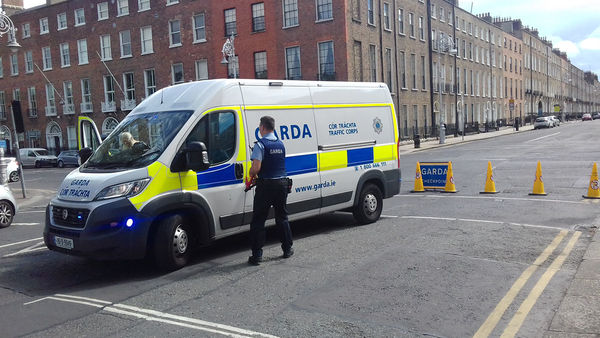
As countries across the world put in place “lockdowns” to flatten the curve of the global COVID-19 pandemic, we are seeing very different approaches to the construction and enforcing of these new restrictions on people’s movements. In the European context, the choices countries have made on how to implement these restrictions can seem very different. In most cases, the reasons that people are allowed to leave their homes is similar, for essential work, food or medical shopping, for medical purposes, or to take exercise. What differs is how different countries police and monitor these new rules.
In France, every person who leaves their home must carry an “attestation de déplacement et de voyage” or a statement as to movement and travel. The attestation is a document that certifies why a person has left his or her abode. Originally, the certificate had to be downloaded, printed, completed and signed and had to be shown on demand, subject to a fine for non-compliance. Today, a smartphone version is available so French residents can now carry an electronic certificate when leaving their home. The French Ministry of the Interior provides seven different types of attestation, covering personal and professional movements, and also travel to and from France. The number of patrols and checks was increased across France, but most particularly in likely departure and destination points, starting 2 April 2020. The forms are available in English as well as in French. These new restrictions were given legal status pursuant to the decree of March 23rd 2020 prescribing rules necessary in the fight against the spread of the Covid-19 virus.

In Ireland, the Health (Preservation and Protection and other Emergency Measures in the Public Interest) Act 2020 (the “Health Act 2020”) was passed in March but when the Irish public was asked to abide by similar restrictions on movements by the government, the Gardaí were not initially given any additional powers to enforce the restrictions. So, while the Gardaí were asking people about the reasons behind movements and encouraging people to return home if the purpose was deemed “non essential,” they could not require a person to turn around. This changed on 7 April when—in light of the impending Easter weekend—enforcement powers were given to the Gardaí pursuant to the Health Act 2020, for an initial period of five days. Non-essential travel is not in and of itself an offence, an “offence will only be committed if a person refuses a direction from a garda to comply with the regulations. In other words, it is not the breaching of the regulations that is illegal, it is the disobeying of the Garda’s instructions once you are caught.” But in the case of Ireland, there is no requirement to carry an “attestation.”
Why the change in approach in Ireland and, more generally, why the concerns about increases in travel across Europe this Easter weekend? In Europe, Easter is traditionally a time of travel, with schools closed for up to two weeks and, in several European countries, Good Friday and/or Easter Monday are public holidays. While only the latter is a public holiday in Ireland (unlike in the UK, which observes both), in normal times in Ireland, banks and schools are closed for four days and many businesses will give the day off. Spring is usually in full force by the time Easter arrives and, as it coincides with the days getting longer, many people will travel, either for the whole weekend or a day trip to visit family, take a trip to the coast or a bit of sightseeing. This is precisely the kind of “normal” activity the new regulations are intended to prevent.
The government feels very strongly that all data show that strict social distancing is working to slow the spread of the virus. They do not want progress in slowing the spread of the virus to be erased if thousands of people make what they consider small concessions on a holiday weekend.
The sanctions in Ireland include the possibility of a fine up to €2,500 and/or up to six months in prison. In France, a first offence carries the risk of a fine of €135. Persistent offenders run the risk of a fine up to €3,750 and six months in prison.
The operation of the new regulations will undoubtedly raise many complex human rights, civil liberties, and criminal justice questions. We will explore some of these issues in an upcoming post.
______________________________________
Clare O’Hare is a lawyer and doctoral candidate at the University of Notre Dame Law School. Clare’s research focuses on the growth of specialized commercial courts in the context of cross-border commercial litigation. Clare is a Graduate Fellow at the Nanovic Institute for European Studies and an active member of the Keough-Naughton Institute for Irish Studies’ Graduate Student Working Group.
Clare spent the majority of her career in legal practice with Freshfields Bruckhaus Deringer in London and Dubai, where she worked on complex international financial transactions and insolvency matters. Prior to joining the Law School, Clare received an MA in Political Science from Notre Dame in 2019. She holds graduate degrees from The Fletcher School at Tufts University and the University of Cambridge. Clare completed her undergraduate degree in Law & French Law at Trinity College Dublin.